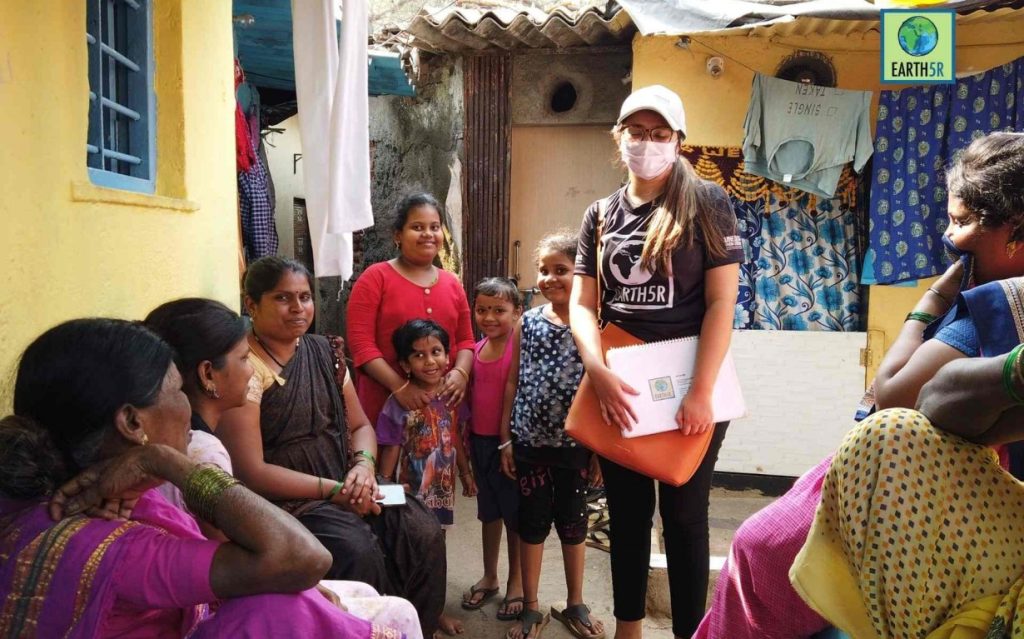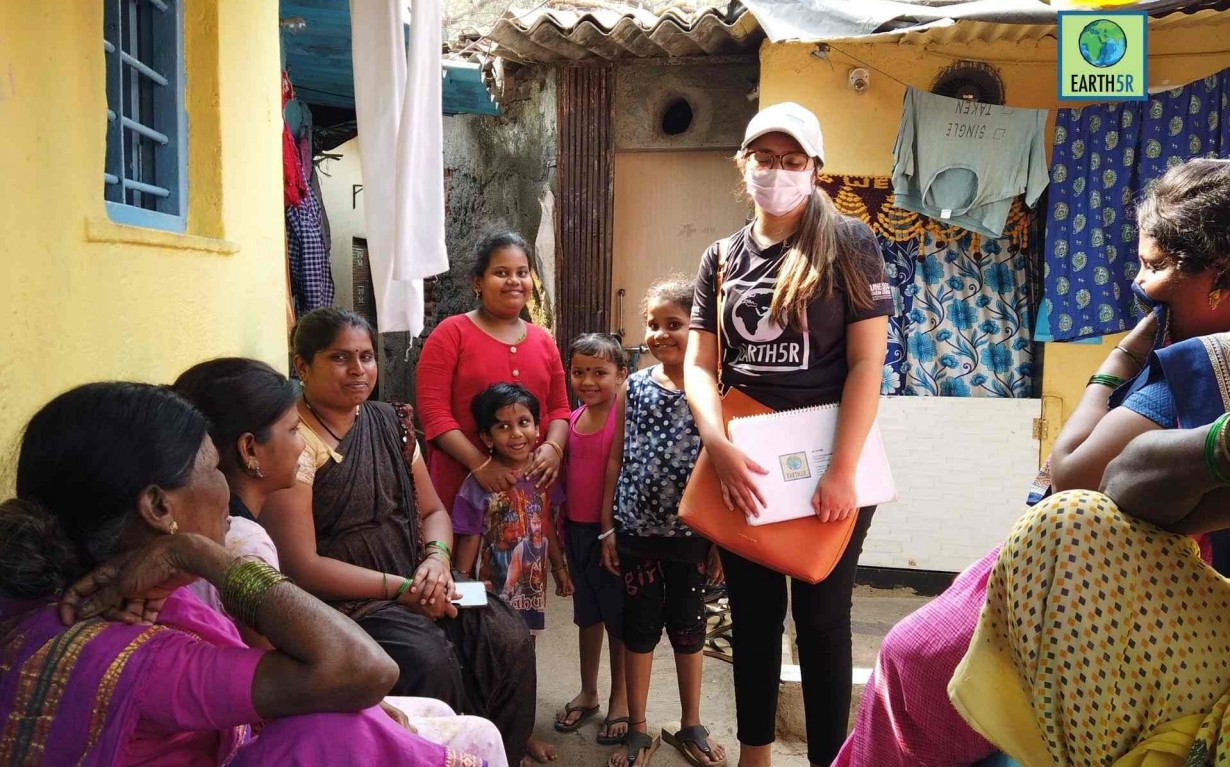
Earth5R’s Women-Centric Solid Waste Management And Circular Economy Based Community Training In Mumbai
Mumbai’s slums represent India’s issues pertaining to overpopulation, access to drinking water, pollution, land space, poverty, unemployment, health, and waste disposal.
Around 65% of Mumbai’s 12 million people live in the cramped, airless slums, making for easy transmission of waste related diseases.
Waste management is critical to human development and health outcomes, especially during the COVID-19 pandemic. With a view to address the growing menace of waste in Mumbai, the Earth5R team is presently working rigorously to create sustainable communities in Mumbai through its Solid Waste Management and Circular Economy based Livelihood Training Program in the slum regions.
Everyday Earth5R volunteers train over 100 new families in sustainable livelihood which creates an additional circular economy of Rs. 2,48,150 while solving the waste problem.
Keeping in mind the characteristics of solid waste generation and the demography of the region, these hands-on training aspire to make Mumbai a zero waste city thereby helping in solving the problem of indiscriminate waste disposal and other related health hazards.
On 24th February, 2021, the Earth5R citizen volunteer Dr. Shivangi Singh visited the Vijay Nagar slum, Aarey Colony to create action based impacts, focussing on the local waste management system including women’s menstrual health and hygiene and what practices the locals can adopt to tackle the waste problem including menstrual waste.
The training covered topics such as managing household waste by segregating it into wet waste, dry waste, hazardous waste and e-waste, performing composting for the organic waste, menstrual health and sanitation, waste management through 3R’s, upcycling, reduce consumer consumption and safe waste disposal practices.
According to the field research conducted, it was found that the women of the area lacked proper provisions for menstrual hygiene and had very little knowledge about disposal of sanitary and medical waste. The women were found to be malnourished and had B12 and D deficiencies.
For that matter, implications of improper menstrual hygiene and safe disposal practices were taught to the local women. Other than that, they were enlightened about the structure of their daily diet, in order to lead a healthy lifestyle.
Overall, the training driven by Earth5R volunteers provided the slum residents a pedagogical understanding of:
- Importance of proper menstrual hygiene.
- Disposal of medical and menstrual waste.
- Implications of deficiencies caused due to menstruation and various means to tackle them through a balanced and nutritious diet.
- Upcycling and livelihood generation by creating scalable products from waste.
- Empowering women living in overpopulated slums and helping them realize that they can be financially independent.
Earth5R volunteer training the local women about circular economy model for better livelihood opportunities
So far, over 4300 families have been reached through the Livelihood and Waste Management programs of the Circular Economy model, which has greatly reduced the burden of waste and helped generate revenue for the local economy. A total of 1040 tonnes of waste from Vijay Nagar slum area, near Aarey Colony has been diverted from landfills annually. This feat was totally achievable with the dedicated work of the citizen volunteers even in such hard times i.e. COVID-19 situation.
ABOUT EARTH5R
Earth5R is an environmental organization from India with its head office at Mumbai. It works with the NGO sector, Companies and helps them conduct environmental Corporate Social Responsibility (CSR) programs across India.
Earth5R specializes in circular economy based projects. Earth5R also offers short term and long term environmental courses and fellowships.
– Reported by Trisha Garg, edited by Om Nair



